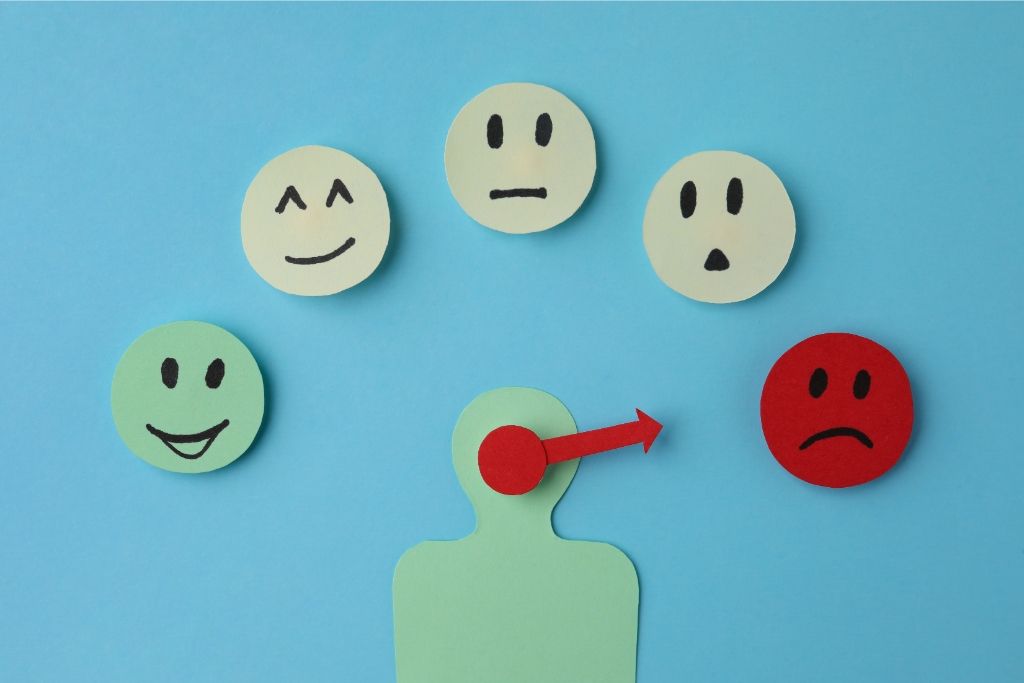Depression is a serious mental illness that affects millions of people worldwide.
It can lead to a range of negative thoughts and emotions, including sadness, hopelessness, and lack of interest in life.
Depression is treatable, and there are many things you can do to overcome it.
We will discuss ten proven tips for overcoming depression.
1)) Seek Professional Help
The first step in overcoming depression is to seek professional help.
This could be in the form of a medical professional, such as a psychiatrist or psychologist, or a support group.
A professional will be able to diagnose you with depression and provide personalized treatment plans.
Tips to Support Your Journey in Seeking Professional Help:
- Be Open and Honest: It's crucial to be transparent about your feelings and experiences with your healthcare provider. This honesty allows them to understand your situation better and provide the most effective treatment plan.
- Do Your Research: Ensure that the professional you choose is reputable, credentialed, and specialized in mental health care. Take time to research different therapists, psychologists, or psychiatrists to find one who is the best fit for you.
- Stick to Your Treatment Plan: It's common for those seeking help to feel better and stop their treatment prematurely. However, it's vital to continue your treatment plan as advised by your healthcare provider, even when you start feeling better. This commitment increases the likelihood of long-term recovery.
Seeking professional help is a monumental first step towards overcoming depression.
It not only paves the way for an accurate diagnosis but also ensures the delivery of a tailored treatment plan.
By being open with your healthcare provider, diligently choosing the right professional, and adhering strictly to the treatment plan suggested, you can navigate your path towards recovery more effectively.
Professional help is not a sign of weakness but a testament to your strength and determination to regain control over your mental health.
2)) Get Enough Sleep
Sleep is essential for mental and physical health.
Lack of sleep can worsen depression symptoms such as fatigue, irritability, and mood swings.
To maintain good sleep hygiene, try to establish a sleep schedule and avoid caffeine and electronic devices before bedtime.
Tips to Improve Your Sleep Hygiene:
- Create a Sleep Schedule: Try to go to bed and wake up at the same time every day, including weekends. This routine can help regulate your body's internal clock and improve your sleep quality.
- Limit Daytime Naps: Long daytime naps can interfere with nighttime sleep. If you have to nap, limit yourself to about 20 to 30 minutes and make it during the midafternoon.
- Carefully Manage Your Food and Drink Intake: Avoid large meals, caffeine, and alcohol close to bedtime. These can disrupt your sleep.
- Create a Restful Environment: Keep your bedroom quiet, dark, and cool. Consider using room-darkening shades, earplugs, a fan, or other devices to create an environment that suits your needs.
- Include Physical Activity in Your Daily Routine: Regular physical activity can help you fall asleep faster and enjoy deeper sleep. However, don't exercise close to bedtime, as it might interfere with your sleep.
Getting an adequate amount of sleep is a pivotal component in the fight against depression.
Implementing good sleep hygiene practices such as maintaining a consistent sleep schedule, minimizing daytime naps, managing your diet, creating a conducive sleep environment, and incorporating daily exercise can significantly improve your sleep quality.
A good night's sleep doesn't just impact your mood and energy levels for the next day, but is a cornerstone of overall mental well-being.
3)) Exercise Regularly
Research has shown that regular exercise can alleviate depression symptoms.
It can increase endorphins (feel-good chemicals) in the brain, reduce stress, and improve self-esteem.
Start with small amounts of physical activity, such as a short daily walk or gentle yoga.
Tips to Incorporate Regular Exercise Into Your Routine:
- Choose an Activity You Enjoy: Exercise doesn't have to be a chore. Whether it's dancing, biking, swimming, or walking, find a physical activity that brings you joy. You will be more likely to stick with it.
- Set Realistic Goals: Start small - even a single 10-minute walk can boost your mood. Gradually increase the length and intensity of your workouts as your stamina improves.
- Make it a Daily Habit: Try to prioritize daily physical activity. Consistency is key in reaping the benefits of exercise for depression.
Incorporating regular exercise into your lifestyle is a powerful tool to combat depression.
By choosing enjoyable physical activities, setting attainable goals, and establishing a routine, you can improve not just your mental health, but also your physical well-being.
Exercise is more than just an antidote for depression symptoms - it's a step towards a healthier, more content life.
4)) Eat A Balanced Diet
It's important to eat a balanced diet to help maintain physical and mental health.
Avoid processed and sugary foods, as well as alcohol and caffeine.
Instead, choose whole and nutritious foods such as fruits, vegetables, lean proteins, and whole grains.
Tips for Maintaining a Balanced Diet:
- Make a Meal Plan: Take some time each week to plan your meals. This helps ensure you eat a variety of foods and makes grocery shopping easier. Include a mix of fruits, vegetables, lean proteins, and whole grains.
- Portion Control: Pay attention to the portion sizes of your meals. Overeating, even of healthy food, can lead to weight gain and other health problems. Use measuring tools or visual cues to ensure appropriate portions.
- Stay Hydrated: Drinking plenty of water is an essential part of a balanced diet. Water aids in digestion, absorption, and transport of nutrients, and helps maintain body temperature.
Healthy eating is a crucial facet of managing depression and overall mental health.
Implementing strategies such as meal planning, portion control, and adequate hydration can significantly contribute to a balanced diet.
The food you consume can have profound effects on not just your physical health, but also your mood and energy levels.
A balanced diet isn't just about maintaining physical health - it's a vital step towards fostering mental well-being.
5)) Practice Mindfulness Meditation
Mindfulness meditation is a great way to reduce depression symptoms.
It involves focusing on the present moment without judgment.
This helps to reduce rumination (repetitive negative thoughts) and improve mood.
Try setting aside a few minutes each day to practice mindfulness meditation.
Tips for Practicing Mindfulness Meditation:
- Start Small: If you're new to mindfulness meditation, start with just a few minutes per day, gradually increasing the duration as you get more comfortable with the practice.
- Find a Quiet Space: Choose a quiet and comfortable spot where you won't be interrupted. This can help you focus on the present moment without distractions.
- Use Guided Meditation: Consider using a guided meditation app or online videos, especially when you're just starting out. These resources can provide helpful structure and guidance.
Incorporating mindfulness meditation into your daily routine can be a potent tool in managing depression.
With patience and practice, focusing on the present moment can reduce rumination and improve your mood.
Mindfulness is more than a coping strategy - it's a journey towards increased self-awareness and acceptance.
Start small, find a quiet space, and consider using guided resources to help you on this path.
With time and consistency, you can cultivate a more peaceful and grounded mental state.
6)) Cultivate Positive Relationships
Social support is crucial for overcoming depression.
Spending time with loved ones can help you feel connected, supported, and less isolated.
Try to foster positive relationships with family, friends, or co-workers.
Tips for Cultivating Positive Relationships:
- Communication is Key: Regularly express your feelings, thoughts, and concerns to those close to you. Honest and open communication builds trust and strengthens relationships.
- Show Appreciation: Recognize and appreciate the efforts of your loved ones. A simple 'thank you' or a gesture of gratitude can go a long way in nurturing positive relationships.
- Spend Quality Time: Involve yourself in activities that you and your loved ones enjoy. Spending quality time together can help in creating stronger bonds and shared memories.
Nurturing positive relationships forms a vital pillar in overcoming depression.
Open communication, expressions of gratitude, and spending quality time together can significantly enhance your sense of belonging and emotional well-being.
These relationships are more than just a social network - they provide emotional support, shared joy, and a sense of community, all of which are essential in your journey towards mental health recovery.
7)) Challenge Negative Thoughts
Negative thoughts are a significant component of depression. To combat negative thinking, try to identify and challenge them.
Ask yourself if they are true or if there is evidence to support them. Then, reframe them into more positive thoughts.
Tips for Challenging Negative Thoughts:
- Identify the Negative Thought: The first step towards challenging negative thoughts is to recognize them. Whenever you find yourself feeling upset or low, try to identify the thought that led to these feelings.
- Question the Validity: After identifying the negative thought, ask yourself whether it's accurate or supported by evidence. Many times, our thoughts are not a reflection of reality, but rather skewed perceptions.
- Reframe the Thought: Once you've questioned the validity of the negative thought, try to reframe it into a positive or neutral thought. This doesn't mean forcing positivity, but rather finding a more balanced or rational perspective.
Challenging and reframing negative thoughts is a crucial aspect of managing depression.
By identifying, questioning, and reframing these thoughts, you can break the cycle of negativity and improve your overall mood and outlook.
This process takes time and practice, but with consistency, you can gradually shift your thinking patterns towards a more balanced and positive perspective.
Be patient with yourself in this journey, as shifting engrained thought patterns is a significant step towards mental health recovery.
8)) Set Realistic Goals
Depression can make you feel overwhelmed and hopeless.
Setting small and achievable goals can help you regain a sense of control and motivation.
Start with simple tasks, such as making your bed or trying a new activity.
Tips for Setting Realistic Goals:
- Start Small: Begin with simple, achievable tasks. Completing these smaller tasks can provide a confidence boost and a sense of achievement.
- Make Them Measurable: For goals to be achievable, they must be specific and measurable. Instead of setting a goal to "exercise more," specify it to "walk for 30 minutes each day."
- Be Flexible: Life is unpredictable, and sometimes, certain goals might not pan out as planned. Be willing to adjust your goals as needed, making sure they remain realistic and achievable.
Setting realistic and achievable goals is a fundamental step in your journey towards overcoming depression.
Starting with small tasks and making them specific and measurable can instill a sense of control and accomplishment.
Be flexible, adjust your goals as necessary, and most importantly, recognize and celebrate your achievements.
This process can provide structure, motivation, and positivity, vital elements in battling depression and fostering mental health recovery.
9)) Practice Self-Care
Self-care is vital for maintaining mental and physical well-being. Take time each day to do something that makes you feel happy and relaxed.
This could be reading a book, taking a bath, or practicing a hobby.
Tips for Practicing Self-Care:
- Identify Activities You Enjoy: Self-care is personal and varies from person to person. Pinpoint activities that bring you joy and relaxation. This could range from reading a book, gardening, to practicing yoga.
- Schedule Time for Self-Care: In our busy lives, it's easy to neglect self-care. Make it a priority by scheduling time for it in your daily routine. Even a few minutes each day can make a significant difference.
- Listen to Your Body: Your body often signals when it's time for rest. Pay attention to these signals. If you're feeling tired, take a short nap or engage in a relaxing activity. Your body and mind will thank you for it.
Practicing self-care is essential in promoting mental health and aiding in depression recovery.
By identifying activities you enjoy, scheduling time for self-care, and listening to your body's needs, you can boost your overall well-being.
Self-care isn't indulgence but a necessary aspect of health care.
It revitalizes your mind, body, and soul, equipping you with the energy to face life's challenges and nurturing resilience in your journey towards mental health recovery.
10)) Be Patient with Yourself
Overcoming depression is a process that takes time and effort. Be patient with yourself and celebrate small victories along the way.
Remember that setbacks are normal and part of the journey.
Nature's Sunshine Nutri-Calm is a Chinese TCM concentrate specifically designed to support positive mood and promote well-being. This unique supplement helps to cleanse and strengthen the liver, as well as promote healthy nervous, circulatory, and lymphatic systems. Made with pure quality ingredients, Nutri-Calm works to provide daily support in managing stress levels and improving overall mood. It's trusted by millions of people worldwide as one of Nature's Sunshine's most popular products - try it today for optimal overall health and well-being!
Tips for Being Patient with Yourself:
- Acknowledge Your Progress: Recognize and celebrate each step you make towards overcoming depression, no matter how small it may seem. This could be as simple as getting out of bed when you didn't feel like it or reaching out to a friend.
- Accept Setbacks: Understand that recovery is not a linear process and setbacks are a normal part of this journey. Instead of being hard on yourself during these times, use them as learning experiences to understand your triggers and coping mechanisms better.
- Practice Mindfulness: Stay present in the moment instead of worrying about how long your recovery will take. Mindfulness techniques such as deep breathing, meditation, or yoga can help you cultivate patience and acceptance towards your healing process.
Being patient with yourself is crucial as you navigate the path of healing from depression.
Consistently acknowledge your progress, even the smallest victories, and understand that setbacks are part of the journey, not roadblocks.
Practicing mindfulness will help anchor you in the present moment, alleviating worries about the future.
Healing is not a race but a personal journey.
Embrace your pace, and know that every step, no matter how tiny, is a step forward towards recovery and better mental health.
Conclusion
Depression can be challenging to overcome, but it is treatable with the right strategies and support.
Seek professional help if you suspect you may be experiencing depression symptoms.
Incorporate these proven tips into your daily life to help manage your symptoms and improve your overall well-being.
Remember that taking small steps towards good mental health is an important accomplishment in itself.
Related Articles and Guides
- How To Stop Being Depressed
- 10 FAQs About How To Overcome Depression
- 10 Tips For Fighting Depression
- 10 Depression Hacks To Help You Cope
Download Our Free E-book!







